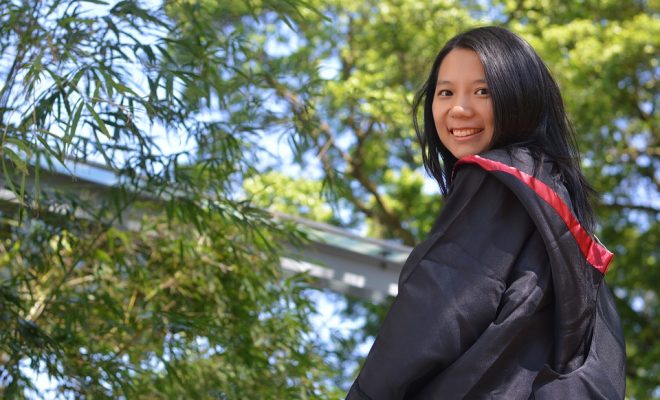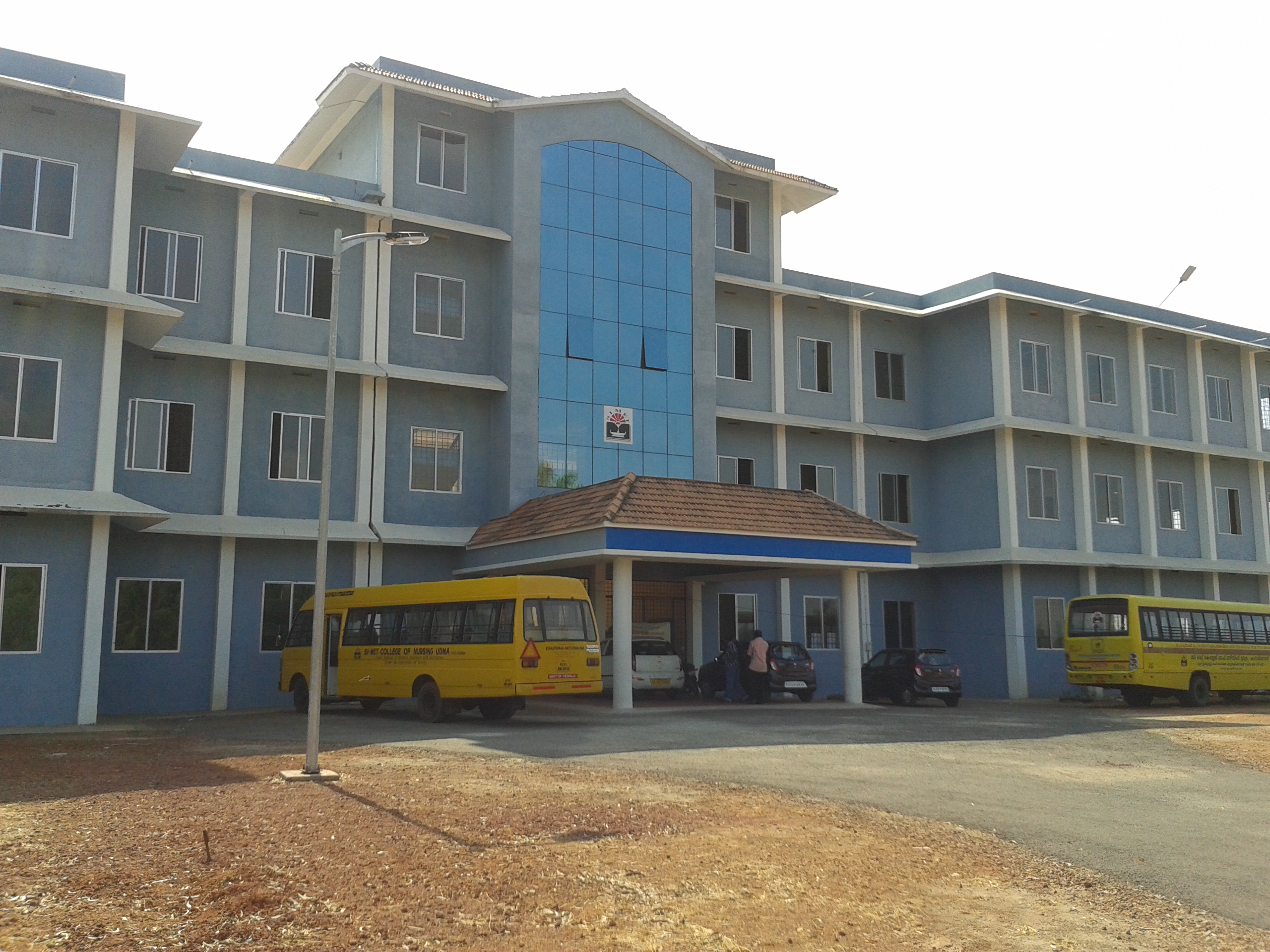2023 Best MSW (Master’s in Social Work) Programs

Click here to find out more about the ranking methodology that we used to compile this list.
Congratulations! If you represent a college or university that is included in this list, please collect your seal below.
Deciding which college to attend can be a daunting task. For many, it will be the most important decision that they make in their lives. To make an informed decision, you have to consider a lot of variables, such as cost of attendance, financial aid, student/teacher ratio, academics, student life, and more. These factors will either positively or negatively impact the quality of education that you receive.
Do you want to acquire an MSW (master’s in social work), but don’t know what institution you should attend? Well, if you are as ambitious as I was in my late teens, then you want to attend a top school, instead of an average or mediocre one. Fortunately, we have already done the legwork for you. To help you find the right school for your interests and goals, we’ve compiled a list of 2022’s best MSW (master’s in social work) programs.
What institution did we forget? Leave your thoughts in the comment section below.
- University of Michigan, Ann Arbor, MI
The University of Michigan established its School of Social Work in 1951, although the institution offered its first social work coursework 30 years earlier. The School of Social Work grants admission to about 730 learners in its MSW degree program and joint PhD Program in social work and social science. The school also enables undergraduates to finish a minor in social work.
The School of Social Work consists of more than 550 locations for MSW fieldwork. The school has a long history of involvement in international social work research and education, and its Office of Global Activities works to connect MSW learners to international social work opportunities via special programs, funding, internationalized coursework, academic resources and supports, and arranging learners and faculty exchanges at partner institutions.
The school’s MSW coursework builds on a generalist foundation and enables learners to tailor the degree to their interests and objectives with four practice method concentration areas, The University of Michigan School of Social Work offers several special programs, which allow learners to engage in culturally specific coursework and training experiences, such as the Geriatric Scholarship Program, the Jewish Communal Leadership Program, and the New Leaders in African-Centered Social Work Scholars Program.
With coursework featuring rigorous behavioral and social research, the joint PhD degree program offers learners with skills to tackle pressing problems, including mental illness, violence toward children, homelessness, and poverty.
- University of Chicago, Chicago, IL
Regarded as one of the best graduate schools of social work in the nation, the University of Chicago’s School of Social Service Administration challenges its learners to dig deeper to comprehend the human costs and root causes of social inequity. Opened in 1908, the School of Social Service Administration was among the first schools of social work in the nation and became part of the University of Chicago in 1920.
The School of Social Service Administration has received recognition for helping define and design the social work profession and social welfare field; the school the foundation for the child-related provisions of the US Social Security system. It also developed the generic casework coursework that serves as a model for social work education.
The School of Social Service Administration offers its learners a firm theoretical foundation, policy and clinical viewpoints, and real-life experiences. It also infuses a multidisciplinary spirit in its research and teaching. The faculty includes individuals with expertise in national and international social welfare and ties to private and public welfare agencies along with local, state, and national governments. Faculty have received honors such as Fulbright Fellows, White House Fellows, and Kellogg Fellows.
The School of Social Service Administration has a robust international social welfare degree program agenda with study abroad programs in collaboration with the Tata Institute of Social Sciences in Mumbai, India, and a relationship with Peking University in China. The school has relationships with more than 600 agencies, through which master’s learners finish two field placements and get real-world experience.
The two-year master of arts degree program, equivalent to an MSW, provides an experiential foundation, which combines policy development, multidisciplinary research, and social science theory with direct social work practice, along with a broader educational foundation. Master’s learners finish elective concentrations in social administration or clinical practice and can customize the degree program via several programs of study. The master’s degree program has several options, such as full-time, part-time and accelerated; learners may also pursue a doctoral degree program and a professional development degree program.
- Washington University in St. Louis, St. Louis, MO
Washington University’s Brown School of Social Work’s dates back more than a century, and the school offered its first MSW degree program in 1945. With programs focused on comprehensive problems and creating solutions, the Brown School prepares graduates to think broadly about complex health issues and recognize those problems that require multifaceted solutions. Using its affiliation with more than a dozen research centers, faculty connections at university research centers, and more than 300 practicum sites worldwide, the Brown School enables learners to get valuable real-world experience.
The Brown School of Social Work boasts a long history of preparing learners for leadership in research with a proven record of successful placement. The school offers its learners access to the latest research along with opportunities to work with faculty investigating research interests through independent study, special projects, or research assistant positions in concepts ranging from mental health services to obesity prevention to violence prevention and public health systems science.
Learners can finish practicum hours at the World Health Organization and Helen Keller International, among others. The master in social work degree is adaptable, pioneering coursework, which offers learners with fundamentals to impact the social work field and hone their leadership, analytical, and team-building skills.
The school also can award advanced standing credit to candidates who hold a BSW from a sanctioned school. The institution has a PhD in social work; doctoral learners may be eligible for full-tuition remission, four-year stipends for living expenses, and adaptable coursework options.
- University of California – Berkeley, Berkeley, CA
Established in 1957, the University of California – Berkeley’s School of Social Welfare grants admission to about 200 learners. Ranked among the top schools of social welfare and social work in the nation, the school’s coursework is built on evidence designed to advance social justice and respond to the needs of international and local communities.
The university is committed to public service, and its prominent faculty trains social workers for an array of advanced practice and leadership positions. The School of Social Welfare’s faculty rank high in the US in per capita productivity. Nationally and internationally recognized faculty carry out cutting-edge research on major issues facing California, the nation, and the world.
The school has internships, international study, and leadership training. The school houses the California Social Work Education Center and the California Child Welfare Indicators Project. The two-year full-time MSW degree program emphasizes using tested knowledge and theory to develop and apply intervention methods. Learners refine their approaches to professional learning, cope with professional dilemmas, and cultivate self-reflection while completing both a foundation and an advanced agency-based field practicum. The institution has hundreds of endorsed field placement sites around the San Francisco Bay area.
Learners can earn School Social Work Credentials, a Social Work with Latinos Certificate, concurrent degrees in public health or public policy, along with a doctor of philosophy in social welfare. Learners can join several learner organizations focused on practicing advocacy, social justice, and leadership, such as the Cal Anti-Racism Collaborative, the Caucus for International Affairs, and the Indigenous Learner Caucus, among others.
- Columbia University, New York, NY
Columbia University School of Social Work combines real-world practice and rigorous academic theory to improve the welfare of communities and citizens of New York City, the United States, and the world.
Among the oldest and most renowned social work institutions and one of only two Ivy League schools of social work in the nation, the School of Social Work covers clinical social work, policy, advanced generalist practice, and programming along with social enterprise administration. The School of Social Work seeks to promote social justice, respect for human diversity, and human rights. Faculty members carry out intervention research on poverty-related issues that impact the nation and the world.
The School of Social Work has two-year, advanced standing, extended, reduced residence, and online programs. Learners who hold a bachelor’s degree from a Council on Social Work Education-sanctioned BSW degree program can take the advanced-standing degree program and finish the Columbia MSW degree program in one year.
The social work master’s is a progressive class sequence with classes in social welfare policy, the social environment, and social work practice. Learners get real-world experience through completing 1,200 field hours. Columbia University partners with more than 600 programs, agencies, and organizations to provide social work learning across the New York/New Jersey/Connecticut region along with where the online MSW is offered. Social work learners can pursue a doctor of philosophy along with continuing education programs.
- University of Washington, Seattle, WA
Established in 1934, the School of Social Work at the University of Washington (UW) grants admission to a little more than 600 learners. With a reputation for advanced research, public engagement, and classroom innovation, the School of Social Work promotes economic and social justice for oppressed and poor populations and improves the quality of life for people worldwide.
Home to educators, social work leaders, and professionals who promote a more humane society and challenge injustice, the school has public service, which improves the empowerment of disadvantaged communities along with the health and well-being of people at the local, national, and international levels.
The University of Washington’s School of Social Work has a one-year advanced standing master in social work degree program for learners who hold a bachelor’s degree in social welfare or social work; a two-year degree program; and a three-year extended degree program. The traditional degree program focuses on professional identity, social justice, social work history, and core social work practice skills. The coursework combines fieldwork and classroom instruction.
Learners in the UW MSW degree program can finish an international practicum and study abroad. The School of Social Work also has undergraduate and doctoral degree options. The School of Social Work has several programs, such as the Carol LaMare Scholars Program, which supports research efforts and education in oncology social work and palliative care; and the Cambodia Partnership in which the School works with Cambodia’s Royal University in Phnom Penh to build human capacity for social alter.
Learners also can participate in a host of learner affinity groups, including the Association of Black Social Work Learners, the Anti-Racism & White Allyship Group, and the Gerontology Social Work Group. The school also consists of more than a dozen research and innovation centers.
- University of Southern California, Los Angeles, CA
The USC Suzanne Dworak-Peck School of Social Work, which grants admission to more than 3,500 learners, incorporates real-world practice with the science of social work to improve the well-being of people and communities and advance economic and social justice. The school’s award-winning faculty teach coursework that emphasizes communication, critical thinking, and collaboration. The social work coursework also incorporates evidence-informed and evidence-based programs, new directions in early intervention and prevention, and implications of new findings in neuroscience.
Learners get real-life experience via 1,000 hours of required field internships and a two-hour practice lab, where learners learn to apply three evidence-based interventions: problem-solving therapy, cognitive behavioral therapy, and motivational interviewing. The school enables learners to finish their field placement at nearby government entities, schools, social service agencies, businesses, hospitals, or non-traditional settings.
The Suzanne Dworak-Peck School of Social Work has several options for its MSW degree program: a two-year, three-year, or four-year traditional degree program, a 37-unit advanced-standing MSW degree program with three- and five-semester options; and an online degree program. Learners eligible for the advanced-standing degree program can waive their first-semester foundation classes.
The school is home to several centers and affiliations, such as the National Center for School Crisis and Bereavement, the USC Center for Asian-Pacific Leadership, and the USC Center for Innovation and Research on Veterans and Military Families, among others. The school enables learners to earn several dual degrees in academic areas such as law, public health, gerontology, planning, public administration, and Jewish nonprofit management. Learners also can pursue a doctor of social work, a master of science in nursing, and a doctor of philosophy via the School of Social Work.
- Case Western Reserve University, Cleveland, OH
For more than 100 years, the Mandel School of Applied Social Sciences at Case Western Reserve University has shown a commitment to the application of social science to improve social welfare. The Mandel School of Applied Social Sciences grants admission to nearly 400 learners, has 10 endowed professorships and boasts more than 7,800 alumni worldwide.
The rigorous, ground-breaking social work coursework focuses on informing social alter, shaping public policy, and transforming lives. Renowned faculty and small class sizes provide learners with individual instruction designed to elevate comprehension of social work theory, practice, and research.
A leader in professional social work training, the Mandel School, has a master of science in social administration—equivalent to a masters in social work—in full-time, part-time, intensive weekend, or online formats. The school has 24 credits of advanced-standing credit to candidates with a bachelor’s degree from a CSWE-sanctioned institution. Learners can obtain advanced standing in the intensive weekend, traditional, and online formats.
The Mandel School of Applied Social Sciences is home to a handful of multidisciplinary research centers , such as the Center for Evidence-Based Practices, the Center on Urban Poverty and Community Development, and the Dr. Semi J. and Ruth W. Begun Center for Violence Prevention Research and Education, which accentuate the use of cutting-edge knowledge to improve service delivery in the community.
The school has several international options, including short-term study aboard classes during school breaks. The Mandel School has an affiliation with more than 350 Greater Cleveland agencies, such as the Cleveland Foundation, the Hospice of the Western Reserve, and the Senate Committee on Labor and Human Resources. The school also enables learners to earn a master’s degree in nonprofit management, a doctorate in social welfare along with several certificates.
- University of North Carolina at Chapel Hill, Chapel Hill, NC
Established in 1920, the University of North Carolina School of Social Work searches for solutions to the challenges of violence, substance abuse, and poverty through pioneering research, which improves education and practice. The school has a long tradition of producing leaders and professionals committed to private, public, and nonprofit services and to the development of programs and policies that strengthen people, families, communities, organizations, and groups.
The rigorous coursework focused on evidence-based practice and self-reflection, prepares graduates for an array of careers. UNC School of Social Work collaborates with all the counties in the state on training, programs, and research to improve the overall health and well-being of North Carolina’s residents.
UNC School of Social Work has three formats for its master’s degrees in social work: full-time, three-year distance education, and advanced-standing options. Candidates to the advanced-standing degree program must hold a bachelor’s degree from a sanctioned degree program. With the help of faculty and staff, UNC MSW learners design a plan of study which best reflects their objectives.
The degree includes 62 total credit hours and a maximum of 1,100 hours of fieldwork. Faculty members work with learners to secure field placements in schools, human service agencies, and other nonprofit and public organizations that serve local communities. Concentration options consist of community, management and policy practice, and direct practice. The School of Social Work is home to the Jordan Institute for Families, which works to address family issues across the lifespan. Learners can finish a doctorate in social work along with dual degree programs offered with UNC’s School of Law, School of Public Health, Department of Public Administration, and Duke University’s Divinity School.
- University of Texas, Austin, TX
The School of Social Work at the University of Texas at Austin has a diverse, world-class, award-winning faculty with expertise in substance abuse, mental health, interindividual violence, health-behavior interventions, and more. The school offers learners dynamic classes, real-life experience via fieldwork, and the skills needed to promote social alter and social justice and to strive to end oppression, discrimination, social injustice, and poverty.
The school’s coursework helps learners hone their critical-thinking skills and prepares graduates for advanced social work practice with people, groups, families, communities, and organizations.
The 60-semester-hour master of science in social work (MSSW) degree program incorporates classroom instruction and field experiences using a bio-psycho-social viewpoint and systems/developmental framework. The social work coursework also emphasizes a commitment to culturally diverse populations, the advancement of the knowledge base of the social work profession, and social and economic justice.
The MSSW degree program has adaptable coursework options, including a two-year, full-time degree program along with 2.5-, 3- or 3.5-year programs. The school also has an advanced standing choice for learners who hold a bachelor of social work; they finish 42 to 48 credits to earn the MSSW.
All 60-hour learners in the MSSW degree program finish 1,020 hours of field practicum. The School of Social Work maintains relationships with more than 400 agencies with locations in Austin, in Texas, and out-of-state; the school works with learners to find placements based on their interests, agency requirements, and educational needs. The school also has international partners for learners wishing to finish their second field placement abroad. International summer programs are also available.
MSSW learners select from concentrations in clinical social work, which focuses on strengths-based, evidence-based, and culturally competent clinical practice technologies; and administration and policy practice, which focuses on six domains: governance, leadership and communication, information management, evaluation, degree program development, and advocacy.
The school also has focused training in medical social work, gerontology, Latino populations, child welfare, and public safety; it also has dual degree programs that allow learners to earn their MSSW in conjunction with a master of divinity, master of public health, master of public affairs, doctor of jurisprudence, and master of arts with major in Latin American studies.
The School of Social Work is home to The Utopian, a print and bi-annual digital magazine for alumni and friends, along with nine research institutes directed by social work faculty. The institutes provide an array of services and pursue multidisciplinary, scientifically rigorous behavioral and social research. The School of Social Work also offers bachelors and doctoral degrees in social work.
- University of Pittsburgh, Pittsburgh, PA
Established in 1918, the University of Pittsburgh School of Social Work grants admission to about 670 learners from around the world. Recognized as a leader in the field of social work, the school prepares learners to work with diverse populations and to examine individual, familial, and environmental factors that affect practice methods and settings and advocate for others. The School of Social Work’s diverse faculty instills learners with a commitment to economic and social justice. It offers them the foundation and skills needed to become leaders in direct practice with people, families, and groups.
The School of Social Work has earned recognition as a national leader in administering holistic statewide child welfare education, training, and research projects with partnerships with the Pennsylvania Department of Public Welfare and the US Administration for Children and Families. The school has the second-largest child welfare training degree program in the nation, and its faculty have expertise ranging from health behavior to domestic violence to juvenile justice, and more.
The School of Social Work, the first school to offer a community organization concentration, also developed the Center on Race and Social Problems. Its learners have received a host of accolades, including Fulbright Scholarships, a Boren Fellowship, a Doris Duke Fellowship, and Albert Schweitzer Fellowships. Learners in the 60-credit master of social work degree program select from two concentrations: community, organization, and social action; or direct practice with students, families, and small groups. Learners in either path can finish a human services management certificate.
The School of Social Work has full-time or part-time enrollment. Learners who hold a bachelor’s degree in social work can apply for advanced-standing status and obtain a maximum of 12 credits. Learners finish 1,080 hours of fieldwork, 720 hours for advanced-standing learners, at one of the school’s more than 500 fieldwork sites. The School of Social Work also has a bachelor’s in social work, a doctor of philosophy along with dual master’s degrees offered in conjunction with other schools at Pitt, including the School of Public and International Affairs, School of Public Health, School of Business, Pittsburgh Theological Seminary, School of Education, and the School of Law.
- University of Wisconsin, Madison, WI
The University of Wisconsin-Madison established its School of Social Work in 1946, although the first social work-related classes began in 1896. The School of Social Work challenges learners to obtain social work skills, knowledge, and values; to provide leadership; and to become dedicated social work professionals. With a focus on social problems and social issues, the school prepares graduates for leadership positions across fields of social work practice.
Learners can finish the MSW degree program on a full-time or part-time basis. During their first year, learners focus on generalist practice and get a strong foundation in social work. The school awards exemptions from some or all the generalist practice classes for learners who hold a BSW from a sanctioned degree program or via various exemption exams.
The school partners with more than 100 agencies where learners finish at least 1,150 hours of required fieldwork. The School of Social Work has some international field placements, and it is home to a state-of-the art practice skills lab. The School of Social Work enables learners to finish bachelors and doctoral degrees in social work along with dual degrees with the School of Medicine and Public Health, Law School, School of Veterinary Medicine or Pharmacy School.
- Boston College, Chestnut Hill, MA
Established in 1936, the Boston College Graduate School of Social Work grants admission to about 620 learners in master and doctoral programs. The school’s MSW degree program couples classroom instruction and real-life experience to cultivate an atmosphere of faculty and learner research and intellectual discipline. The school offers a professional framework which respects diversity, promotes individual dignity, and seeks distributive justice in the Catholic, Jesuit tradition. Committed to international dimensions of social work and social problems, the school sponsors the annual International Social Work Conference.
The school couples flexibility and structure with full-time three-year or four-year degree program options. Learners who hold a BSW degree or MSW class credits may be eligible for advanced standing status. Boston College MSW learners select a clinical or macro: social innovation and leadership, along with a concentration.
With 1,200 hours of field education, Boston College learners apply their knowledge in practice situations with people, families, and groups within organizations and communities. The school has a network of 1,000 agencies for fieldwork. Learners finish two field placements—the first during their foundation year and their second during their advanced year, which focuses on the learner’s selected concentration.
Boston College’s Graduate School of Social Work is home to several centers and institutes, such as the Institute on Aging, Immigrant Integration Lab, and the Center for Social Innovation. The School of Social Work also enables learners to earn dual degrees in law, business, and theology and ministry.
- University of California, Los Angeles, CA
Established in 1947, the Department of Social Welfare at UCLA promotes economic and social justice for disadvantaged populations and improves human well-being. Part of the Luskin School of Public Affairs, the department’s master of social welfare degree program offers learners a solid foundation in research, theory, and social policy.
With a focus on aging, adolescent issues, child welfare, poverty, mental health, and immigration, the UCLA MSW degree program prepares graduates for leadership positions in social work practice and addresses the health, social, and mental health needs of diverse populations.
The full-time, two-year core coursework, an advanced research class or research project, and 1,100 hours of fieldwork. UCLA MSW learners select from two paths: macro, which focuses on organizations, communities, and policy; and micro, which focuses on people, families, and groups. During their first-year placement, learners partake in direct service along with community outreach, research activities, staff meetings, and more. The second-year placement focuses on the learner’s selected path of study.
The Department of Social Welfare also has a doctorate in social welfare, an undergraduate minor in public affairs, along with dual degrees in Asian American studies, law, public health, and public policy.
- University of Pennsylvania, Philadelphia, PA
Established in 1908, the Penn School of Social Policy & Practice prepares learners to address macro and micro societal problems at local, national, and international levels. Legendary faculty who are leaders in their chosen fields contribute to practice, research, and publications on social problems.
Using theory-based programs, pioneering research, and educational programs, the school encourages multidisciplinary and multicultural thoughts and work along with the examination of social problems via an international lens. The school prepares social workers for leadership positions in providing and developing services for people, families, groups, and communities. The master of social work coursework incorporates research with the development of practice skills, the study of social policies and problems, theories and methods of social alter, and knowledge about human relationships.
The school has several enrollment options: a two-year full-time degree program, a three-year part-time degree program, an advanced standing degree program for learners who hold a BSW, and an employed professionals’ degree program for experienced professionals who work full time. The master of social work a foundation year and an advanced year when learners focus on a clinical or macro concentration.
MSW learners also finish two field placements. The school selects the placement site from its database of more than 600 agencies. The institution enables learners to finish nearly a dozen dual degree programs, including those in law, business administration, and bioethics, among others. The School of Social Policy & Practice also has master’s degrees in social policy and nonprofit leadership and doctorates in social welfare and clinical social work.






